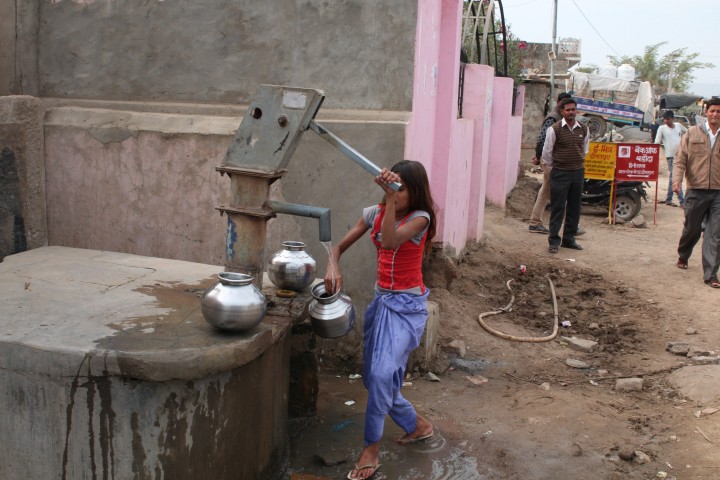SuSanA India Chapter Thematic Discussion Series Synthesis Document Addressing the Last Female Mile - Inclusion in sanitation focusing on women
Jacob, N. (2019)

Published in: 2019
Pages: 8
Publisher:
SuSanA India Chapter
Author:
Jacob, N.
Uploaded by:
Nitya Jacob
2185 Views
14 Downloads
In peri-urban areas and small and medium towns, several studies have found women have problems finding safe and convenient toilets and drinking water. The toilets provided in resettlement colonies and tenements are often inadequate, unsafe and in poor condition. One of the main reasons for bad water and sanitation facilities in these resettlement areas is that women are usually not part of the process of planning and implementation.
In two resettlement colonies of Delhi, a study by WaterAid found most households have individual toilets but these used inappropriate disposal mechanisms that affect the sanitary environment of the colony. There are community toilets, but women do not use them as they are ill-kept and unsafe. Tiruchirappalli in Tamil Nadu, shows a way out of this crisis through community-managed toilets with bathing and washing facilities jointly managed by city authorities, communities and NGOs. In Ahmedabad, Gujarat, under the Slum Networking project the main achievement was empowerment and transformation of women from slums.
Even as most parts of the country have been declared ODF, challenges remain in reaching the ‘last mile’ and providing the differently abled with sanitation. The challenge is particularly acute in the case of women in remote villages, or with special needs. A commonly-overlooked challenge is sanitation needs of pregnant women and the elderly.
This happens because of negative perceptions about women, their role and abilities. Decision-makers are often unaware of gender concerns and assume technical matters are gender neutral in some way. Gender crops up in the selection of ‘beneficiaries’, but even here, they seldom consider intra-household inequalities. Often, gender specialists lack sectoral knowledge, in this case, specific information about water and sanitation.
Bibliographic information
Jacob, N. (2019). SuSanA India Chapter Thematic Discussion Series Synthesis Document Addressing the Last Female Mile - Inclusion in sanitation focusing on women. SuSanA India Chapter
Filter tags
East Asia & Pacific English Gender equality Peri-urban Publications by SuSanA Publications by SuSanA Women's rights & representation and empowerment














